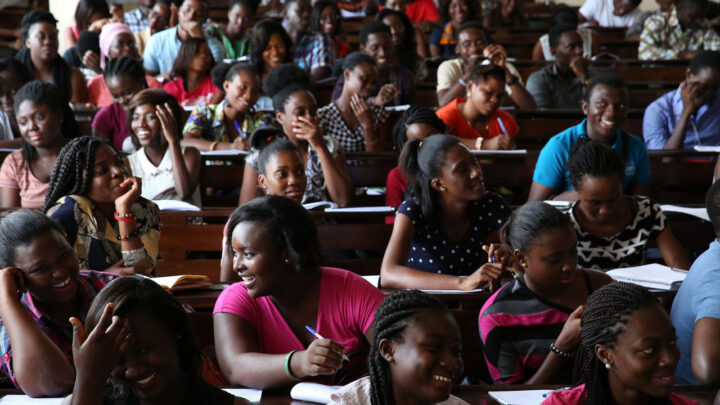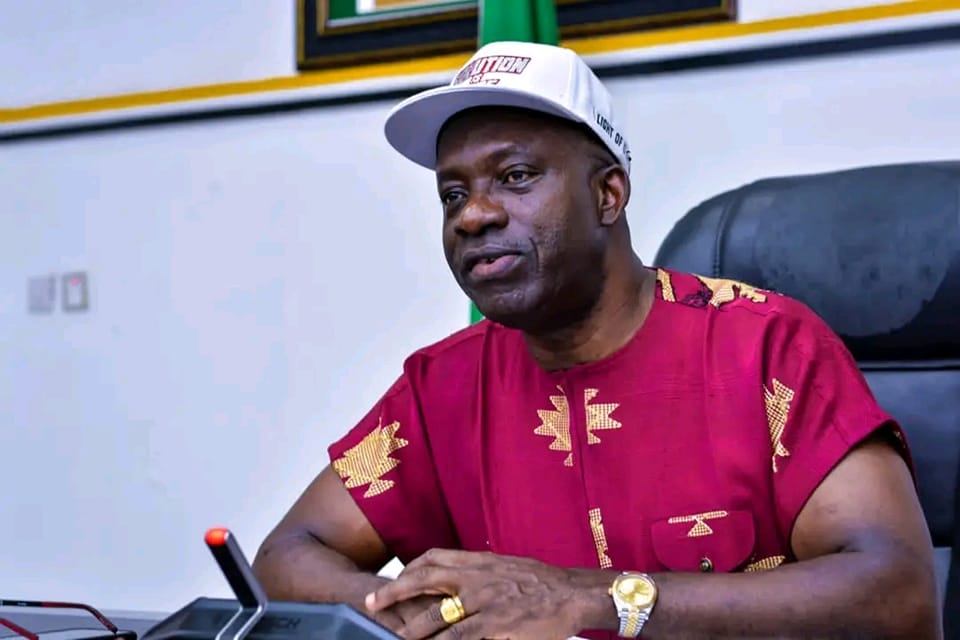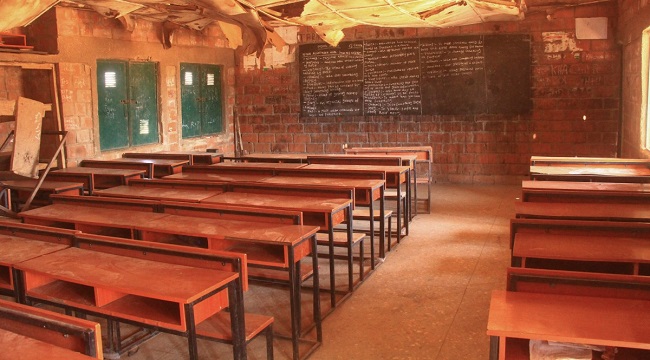An illustrative photo of university students.
As a university lecturer in Nigeria who was trying to do better with my teaching, I was frustrated by the divide between education research and practice. It bothered me that my university had a whole faculty of education with many professors conducting hundreds of research every year about how to improve education, yet the effect of their work was not felt in my classroom which was just a few blocks away from their offices.
It frustrated me.
Now, I see it is not only my university. In fact, it is not only an issue in Nigeria.
For my ongoing doctoral study, I have been taking a class on design-based education research. DBER argues for the kind of education research that is aimed at improving education practice while also contributing to education theory. In this class, my colleagues and I have been sharing frustrations about the divide between education research and practice. We are wondering why education research is mostly been done in a way that doesn’t have much effect on education practice. Why researchers have gathered a lot of useful knowledge that is sitting on our academic shelves. I have been thinking a lot about this and wondering if education research has been inaccessible or simply not accessed by education practitioners.
Advertisement
I realized it is a little of both, depending on which part of the world you are looking at. In Nigeria, for instance, it is both. Many education researches are hidden behind discipline-themed languages that are inaccessible to the lingua franca of practitioners and to the general public who should have a stake in it.
Even when they are not, they are hidden behind publishing paywalls that cut off access from teachers who cannot afford it. This knowledge is only used to get academic promotions and not being used to make a difference in the classrooms.
I believe we need to break these barriers down. We cannot keep complaining about the many challenges of our education system in the same country with tens of thousands of education professors who are conducting research on these same challenges year-in, and year-out. We need to bridge the gap between the world of education research and practice. We need more public-facing, generally accessible, knowledge-brokering works that show how quality education can be done. We need more advocates to bridge the worlds of education research and practices.
Advertisement
We need to stop keeping the education solutions in A4 papers only and put them in the hands of people who can implement them. And we need more researches that not only contribute to education theory but also improve DBER. It’s time to bridge the divide and move the solutions from the shelves to the classrooms.
Oluwatoyin is a Doctoral Researcher in STEM Education, Social Entrepreneur and Education Policy Advocate. She writes from Nigeria and United States. She can be reached at [email protected] or on LinkedIn here.
Views expressed by contributors are strictly personal and not of TheCable.







